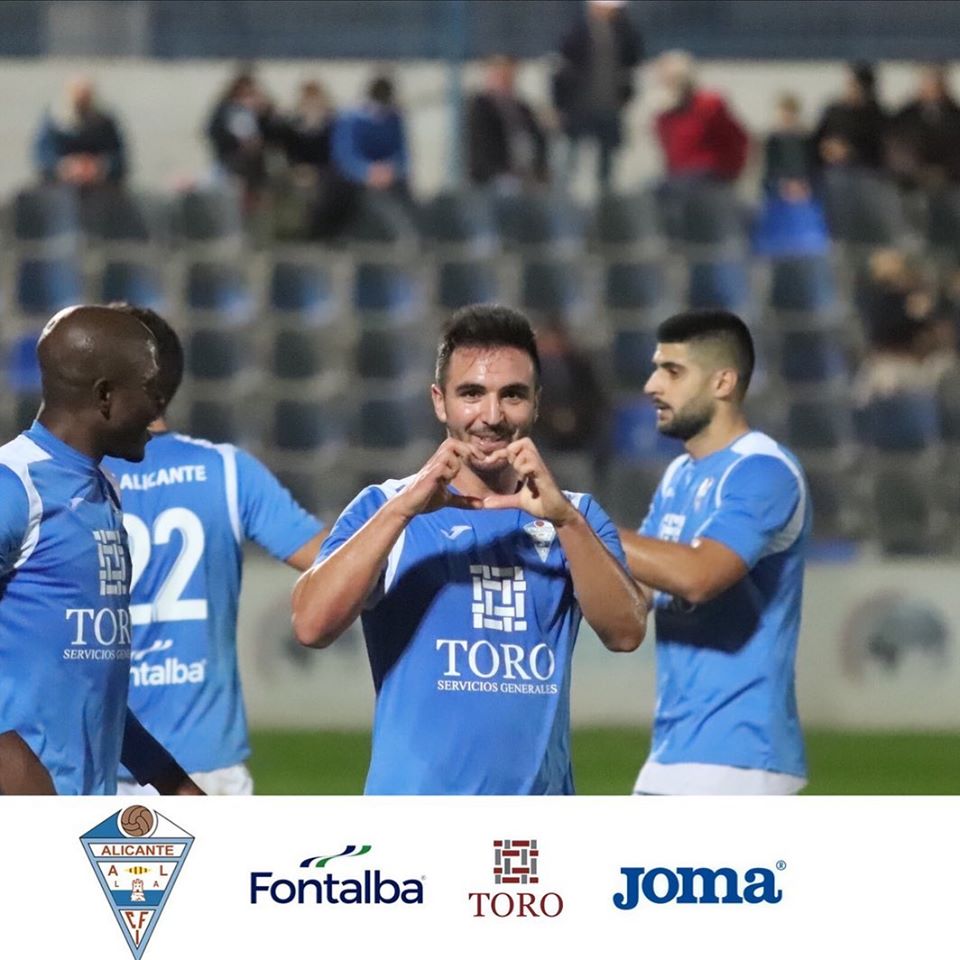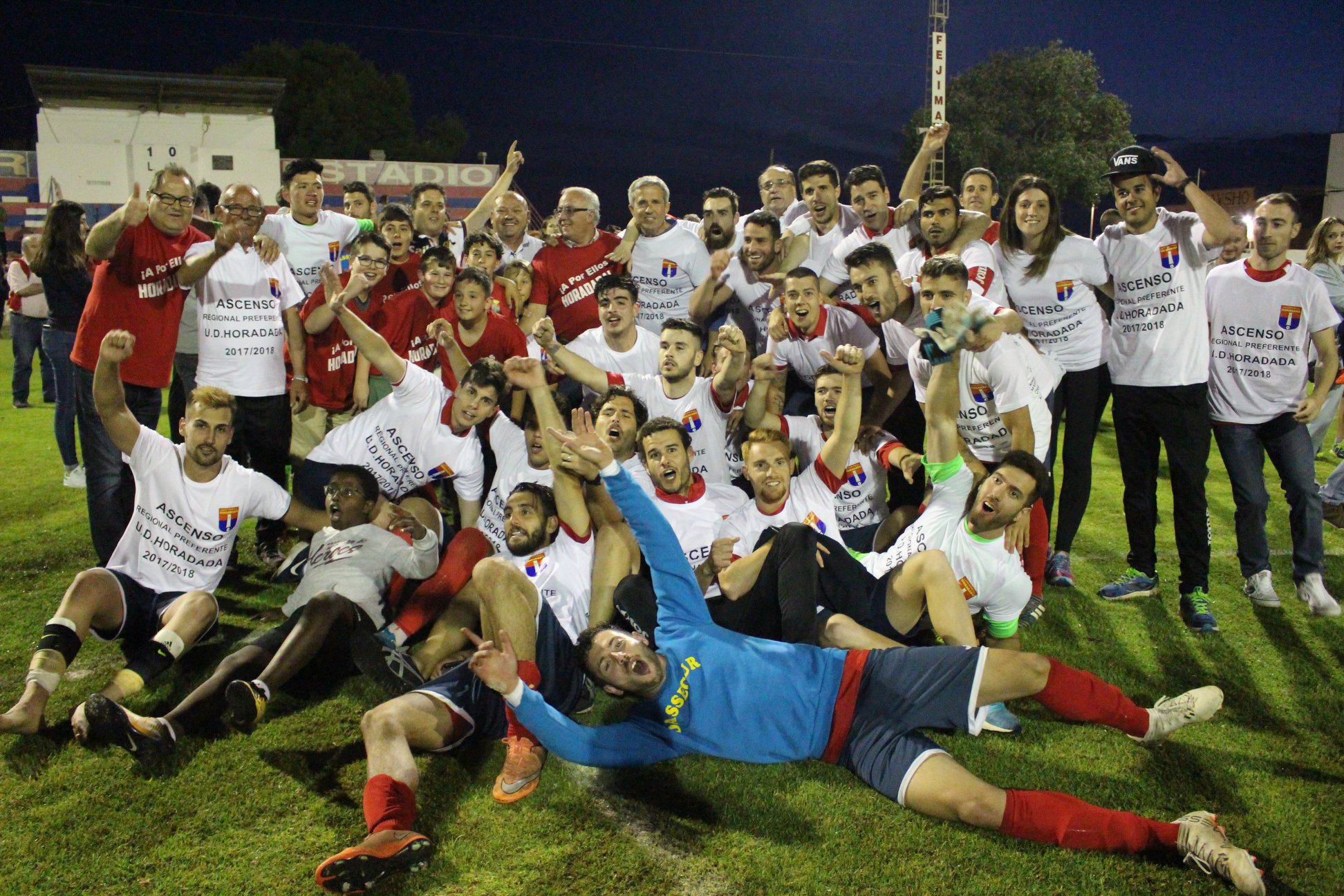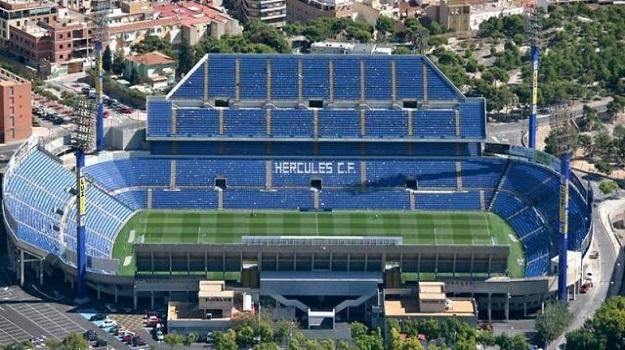- As an Englishman visiting Alicante I wrote about my experience taking in two live football matches in one day in the city (Independiente and Hercules.) The result is an interesting read
By Ross Alexander Younger
Fresh was the Spring sunshine, fresh was my desire to discover. Two new stadiums, two new teams, two new cultures. Independiente de Alicante at midday, followed by Hercules at five o’clock.
I had no real idea what I would find. I hadn’t exactly done my research. But I was game to take the chance.
I knew that sometimes these gambles don’t pay off. Sometimes the football experience simply isn’t very good. I rarely actually regret it, but I do sometimes ask myself why I go so far out of my way to search out the footballing experience.
I had arrived in Alicante the previous evening, bedded into my cheap hotel, taken a walk around the beach front, then gone back and settled in for a long sleep. I needed it. I work long hours and this was a cheeky four-night break from my high-intensity job back home.
Waking up to my alarm isn’t always easy when the bed is comfortable and the reason for waking up is to trek to the suburbs of Alicante to watch a fifth-tier match. But wake up I did.
I messed up the route to the stadium, in spite of my having Google Maps on my phone, and I arrived ten minutes into the game.
I walk half way around the stadium and then back again before I find the way in. Small stadiums like this, I suppose, are visited primarily by locals, a couple of hundred of them per game,
And, because they are regulars, they know that the small door that looks like a fire escape is where you get in.
They know that, if you arrive late, you just push the door open and walk in, nobody to pay. I did not know any of this. But I saw a man doing it and I copied. I was in. I speak fluent Spanish and I asked somebody, upon entering, whether I had to pay for a ticket. He told me no.
I am not exaggerating when I write that, in this small stadium, very low-level football, there was the best catering facilities I have seen inside any football stadium. And I have probably been in over a hundred, including many top-level ones.
It was basically your traditional Spanish bar, but inside a football stadium. When I ordered my food and drink, I told the guy “I have been in plenty football stadiums, but I have never seen anything like this.” He beamed at me, a pleasant man in his late fifties, perhaps, and told me that these facilities had been voted the best facilities in Spanish football. I told him that I could well believe it.
I walked off with my sandwich and coffee and set about to find a decent spot to sit and watch the game. On the side where I was sat, there was your basic seats to sit on, no cover, but, as we know, it is sunny there most of the time.
If there was a cover it would be to protect you from the sun. To give the stadium credit, the seats ran down the length of the pitch, about five or six high, and the stand looked quite appealing. There were a hundred and fifty or so people sat down watching the game, a nice, relaxed midday activity. As is often the case at this level, a fair proportion of these fans could easily have been related to the players or the staff.
Behind each goal there was only standing room, and, opposite me, there was a reasonable stand with a few hundred seats, rising up to about twenty metres off the ground.
This is actually quite an impressive stadium when you bear in mind that this team plays in the fifth tier, but this system is different to the system in England. It is as follows.
- First tier: 20 teams
- Second tier: 22 teams
- Third tier: 80 teams between 4 regional groups
- Fourth tier: 360 teams between 18 regional groups
- Fifth tier: 72 teams between 4 groups
So Independiente de Alicante are in the fifth tier, which means that, even if they were currently first in their league, there would still be at least 482 teams above them in Spain. That is the equivalent of 24 leagues of 20 teams. I will hopefully write a post one day explaining the whole Spanish league system in full. I will need to do my research first of course.

Anyhow, on a lighter note, I quite like the stadium. There is a nice view to the north of the Maigmo mountains, which reminds me of the view from the Real Mallorca stadium. The Real Mallorca stadium, however, is much grander!
The football is honest and keen, the players presumably not very well paid if they earn anything at all. As we all know, however, footballers are capable of rising from nowhere to massive achievements. I am always on the lookout for any player who is displaying any kind of raw Vardy-esque energy and determination.
There is a youngster out there, maybe seventeen or eighteen, who looks like he fancies himself at a higher level of league football, but I don’t see him do anything of substance. I do witness an absolute wonder goal at this game though. The wind blowing directly south, one of the visiting players catches the keeper off his line and truly thwacks it goalward, from about 45 yards, and it sails over the keeper’s head and into the net.
I do not know if this goal was even recorded on any video, but it really should have been. It was a marvel. I get some more food from the gourmet football stadium bar, pay the patron another compliment, and the rest of the game passes by. Independiente lose 0-1 to Benidorm, their close rivals from up the coast.
But, then again, in this regional league, every team is a geographical rival. Out of eighteen teams in their league, Independiente’s most distant rival geographically speaking is Horadada, sixty-eight kilometres away.

Contrary to what some may say or think, there are tall, blonde Spanish men, and also more of other nationalities, especially in touristic places like Alicante.
Thankfully, therefore, I don’t necessarily stick out like a sore thumb. But, sometimes, like when I venture out to remote places like this, I do get the feeling that everyone can see that I am a Northern European tourist with a bit too much time on his hands.
Not a problem. I have had a good time, I have something new to write home about, a new life experience, and I walk out of there feeling quite vindicated. Part one of my two match day is over, and I set about walking back into town, maybe even get a coffee en route!
Two games in one day in Alicante (part 2)
In the immediate aftermath of the excitement of Independiente at midday, my day started moving along at an extremely leisurely pace. This is still a holiday folks! With the gentle warmth beaming down on my time in this Mediterranean city, there was not too much to grumble about. I took a slow walk back towards the hotel, situated in the centre of town, through places with such names as Altozano and Campoamor. I like trams and I like parks. Alicante seems nice to me. I am warming to it.
I grab a bite to eat during a slow stroll around the old town. Then, before I know it, it is time to head to the Estadio Jose Rico Perez for my second football match of the day!
The stadium is situated, rather wonderfully, on the edge of a large park. Near the centre of town, this park also contains San Fernando Castle. Looking back on this now, on Google Maps, I see that the names of most of the parks, streets, and buildings in Alicante are written in Valencian.
So it’s not really “Estadio Jose Rico Perez,” but, rather, it is “Estadi Jose Rico Perez.” It is not Alicante, it is Alacant. A castle isn’t called a “castillo,” but a “castell.”
Confused? Let me guide you through it. Valencian is a language. Whether or not it is a dialect of Catalan, there is some debate, but it is certainly not a dialect of Spanish.
Lots of people speak Valencian in the autonomous community of Valencia, of which Alicante is a part, and they are generally very happy with the linguistic situation. Everybody who speaks Valencian will also speak Spanish fluently anyway, so there is no issue there.
All in all I find it quite charming, if I am honest, that there are two languages here that co-exist with such harmony.
I pass through the park on the way to the stadium. Super views of the sea. This city doesn’t get as much attention as it could do, despite it having a busy airport, perhaps due to the fact that the airport is largely used for tourists to disperse up and down the coast to other towns such as Benidorm and Torrevieja. The city of Alicante is more like the economic centre of the area.
The match I am going to see is Hercules versus Ebro. Never heard of them? Neither had I. I had heard of a river called the Ebro, in fact I once spent four months in a town called Fraga, just a few miles from the Ebro. When there I once visited a town called Mequinenza, which sits virtually on the said river. But I had never heard of the football team.

Club Deportivo Ebro, coming all the way down from the city of Zaragoza, is a team that, at the time of writing, is playing in the third tier for only the fourth season in their history. As recently as 1986 they were playing in the seventh tier, and, with a home capacity of only 1000 spectators, perhaps their stadium would reflect this. I have been to Zaragoza before, and saw the Real Zaragoza stadium from the outside, without realising there was another team in town.
So, whereas Ebro is a relative minnow, punching high above their weight, Hercules is at the other end of the spectrum. With a stadium of nearly thirty thousand, they currently find themselves languishing in the third tier of Spanish football for the fifth consecutive season, having previously spent reasonable chunks of their history in the top tier. They even had Juventus and France legend David Trezeguet on their books in the 2010-2011 season, though his twelve league goals couldn’t keep them up.
I am expecting a raucous atmosphere at the Jose Rico Perez, and I find quite a bustle upon arrival. As was to be expected, I had no trouble bagging myself a ticket for the game. I have never seen a sold-out game in Spain yet, though, granted, I am sure they do occur, namely for the big games between Barcelona and Madrid, for example.
Sometimes you give yourself the false idea that, at a certain level, all stadiums are quite similar. This is clearly not the case, as I was reminded of upon entering into the behemothic Jose Rico Perez. There was very much a feel of “this is a top tier ground” around the place. You can see the photo attached to the article to see the outstanding shape of the stand in front of me, protruding upwards, grabbing your attention. Nice architectural piece.
Rather different from the smaller, more modest stadium at Independiente, I liked them both greatly, but, clearly, the bigger one is usually the better one! There is a crowd of around six or seven thousand in there, not too bad. These guys are used to seeing bigger fish in their home ground, but they’ll still turn out to support their team through the tough times! Any live game is better than sitting at home glued to a screen, especially when the weather is so pleasant.
The food was reasonable. I got a nice little empanadilla, a small pastry with tomato and vegetable filling, for a Euro I think it was. I went back and got a couple more. They always serve these packets of plain crisps, or chips, as the Americans would say. I bagged myself a pack of them for a Euro too. Not the healthiest day of my life but at least I got my fix of football!
The game itself was highly entertaining. Very competitive. Hercules found themselves pushing for a top four place, which would put them in a playoff involving sixteen teams from across four groups at this level from across Spain.
The prize? One of a total of four promotion places to the second tier. This system is clearly different to that of England, as it means that you could finish top of your regionalised third tier group, after 38 games, yet still have to go into a playoff with fifteen other teams. The team that finished fourth could end up getting promoted instead of the team that finished first! Rather cruel, you could say, but that is the way it is. That is football.
It does make it more competitive though, and, at the time of writing, we are looking at a situation in which Atletico Baleares, a tiny team from Palma de Mallorca, could find themselves promoted to the second tier for the first time since 1963. Or how about UE Cornella, an even smaller team, from the suburbs of Barcelona. I wouldn’t say no to that!
Ebro, pushing mid-table, in a reasonably punching-above-your-weight situation for them. Bravo Ebro! A mid-table finish for them in the third tier would surely be considered a good season.
Such a finish for Hercules, with the size of the club, and the expectation, would, surely, not go down well.
Personally I would love to be paid for playing football in this league, but, for a professional footballer, you could be forgiven for finding it slightly demeaning to be up against the reserve sides of Barcelona, Valencia, Espanyol, Villareal, Levante and even Girona. Reserve sides they are, but, as in many other countries, notably Portugal, these teams play in the regular league system, and are allowed to make it up to as high as one league below the first team associated to their reserve team.
So, if Barcelona B were playing in the second tier, they couldn’t be promoted to the top tier, as that is where Barcelona reside. Also worthy of note, if this were the case, and Barcelona first team got relegated to the second division, Barcelona B would be demoted to the third tier. Slightly confusing, perhaps, but you can hardly argue with the logic when you consider the success that Spain has had internationally recently.
It is also worthy of note that Pep Guardiola’s first job as a coach was when he did fantastically well to get Barcelona B promoted to the third tier with players like Pedro Rodriguez and Sergio Busquets.
Back to the game, Ebro went two-nil up by half time, a thoroughly deserved lead, something of a first half giant killing you might say. Hercules pulled a goal back, before Ebro made it three with four minutes to go. Hercules got their second with one minute remaining, but it was simply too late. A good win for the team from Aragon, and they had definitely deserved it.
I was slightly disappointed that I hadn’t even seen anything about the Englishman I had heard of who played for Hercules, Connor Ruane. His name isn’t even on their Wikipedia page, but I did read an interview with him dated after the January transfer window, so I am assuming they just haven’t updated their Wikipedia recently. Or, maybe, he is more associated with Hercules B team, which plays in a lower league, and whose Wikipedia page doesn’t list their players.
I am sure I am far from being the only one who finds it intriguing to hear about an Englishman plying his trade abroad. As we know, it doesn’t happen that often, so it is always interesting when we hear of it.
The day had been warm, but the chill comes quickly when it is February, even in the south of Spain. Prepared for this, I spent large parts of the second half with my snood pulled over my chin. I had taken some photos, I had enjoyed seeing another ground, and I was ready to get away shortly after the final whistle. The players left the pitch to their customary applause, despite having lost, and I made my way into the concourse and away into the night. Two matches in one day. Some would call me crazy. I had enjoyed myself muchly!





